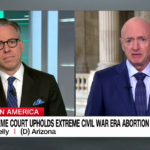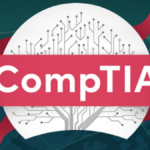
Controversial Words You Can Use

John McWhorter


To speak our language these days with enlightenment is to harbor an ongoing sense that there are words and expressions that come to mind but that, upon reflection, we shouldn’t utter. I refer not only to terms like the N-word — an easy case for self-censorship — but also to an eternally morphing assemblage of locutions that pedants, our kids, human resources and the Twitter herd say we shouldn’t use anymore. Terms that are hardly egregious but maybe just aren’t the best look.
In these latter cases we might go easier on ourselves because we’re being urged to let lexicographic paranoia steamroll common sense and basic humanity for justifications that don’t stand up as well as we might suppose. The list of supposedly problematic expressions is getting so long as to seem almost willfully copious, almost as if we were actively searching for terms to ban as a kind of sport.
On the phraseological front, for instance, I am told that people’s tendency to pepper their speech with the preface “to be honest” is a no-no: redundant because we can assume that in the default case, all people are being honest when they speak.
But expressions that underscore one’s sincerity aren’t just verbal flourishes; they help make communication work. For one, they are no novel degression from some mythical past when people didn’t flag their honesty when speaking. I think of Edna Ferber’s well-loved, century-old Emma McChesney books about a flinty divorcée making her way in the America of the period as a single parent. Ferber’s characters do a lot of talking, and so reading their stories gives you a sense of what ordinary American English was like around 1915, with lines of dialogue such as “Honestly, Mrs. Buck, you know I’d try to sell pretzels in London if you asked me to.”
Do we really think “honestly” is a waste?
In his classic analysis of how speaking works, the philosopher H.P. Grice taught that conversation is founded on being informative, truthful, relevant and clear. Those points may seem too obvious to be listed as new information. But the full humanity of language gets interesting once we understand that real exchanges sometimes involve and even require regularly flouting those axioms. “Nice shirt!” you squawk at someone whose shirt is decidedly un-nice. The statement’s irony, and therefore its humor, comes from defying a tacit rule about honesty.
Under this view, to say “honestly” fits right in as a polite indication that you’re playing by the rules, not breaking them. There are languages that take this even further, with usage rules that require you to convey not only that you’re being sincere, not sarcastic, but also where you got the information: In Tuyuca, you put different suffixes on phrases depending on whether you know something from seeing it, hearing it, surmising it or getting it from hearsay. In comparison, our little “to be honest” is a blunter but hardly vacuous instrument.
I’ll talk about this sort of quandary in “Woke Words,” my New York Times Q. and A. this Thursday, and the conversation will surely get spicier when we go into more societally loaded questions, including some you’ve submitted in advance: One person reports being told that we are no longer to say “brown bag lunch” because the phrase evokes the crude color scale that some elite (and elitist) African American organizations are said to have used, once upon a time, to determine eligibility for membership, with only people lighter in complexion than a brown bag admitted.
On this one I must admit a certain skepticism (not of intra-Black colorism — that’s quite real) that “brown bag lunch” should be implicated, for the reason of the antiquity. How many people today know what the brown bag test was, and more to the point, need we proscribe words and expressions to symbolically exorcise a practice that no longer exists?
If we do, then by the same logic, we should no longer refer to whipped cream, since enslaved people were whipped, or shucking corn, because the phrase “shucking and jiving” refers to Black people faking glee to placate white people. If those hypotheticals seem to be pushing it, I’m not sure how “brown bag” is different.
More readily understandable is the pox on “retarded”; associations with the word became so noxious (in my youth it was, sadly, regularly used as a slur) that the impulse to replace it with other terms was natural. But the change to terms like “intellectually disabled” exemplifies the euphemism treadmill I referred to in an earlier piece: “Crippled” becomes “handicapped” becomes “differently abled,” and each new term tends to take on the old connotations. At one point, at least some developmentally disabled people were described as having “special needs” but, plus ça change, “special” also gets leveled as a slur in certain malicious contexts.
Then I’ve also seen calls to get rid of expressions in which the word “black” denotes anything sinister: No more “blacklist,” despite that it did not emerge with a meaning related to Black people.
Which brings me back to the N-word, out of which Black Americans have wangled two rather different meanings: a slur when written or pronounced with a final “er” and a term of endearment when it ends in “a.” If the world keeps spinning with that bifurcation, then I’m assuming we can stake our ground and designate “Black” as fierce, with an ebony glow, while allowing a scattering of expressions using the word to indicate negativity of no relation to Black Americans, such as “Black Friday” and “blackguard.”
Make no mistake: Many expressions we’re told to stop using are ones most of us will agree we should ditch. “Asian American” and “Asian” were welcome replacements for the tacky, exoticizing “Oriental.” Labeling women “hysterical” or “emotional” to imply inherent irrationality has been blissfully condemned.
I worry, however, when the quest to rid the language of genuinely dismissive terms mission creeps and becomes an excursion that neglects the passage of time and words’ tendency to harbor multiple meanings in any language. Linguists call that latter reality polysemy; I might address it here by noting that sometimes a black cloud is just a black cloud. See you Thursday.
Explore how race and language shape our politics and culture — and enjoy a special live performance — in this virtual event for Times subscribers only.
Source: https://www.nytimes.com/2021/10/12/opinion/language-words-woke.html

















